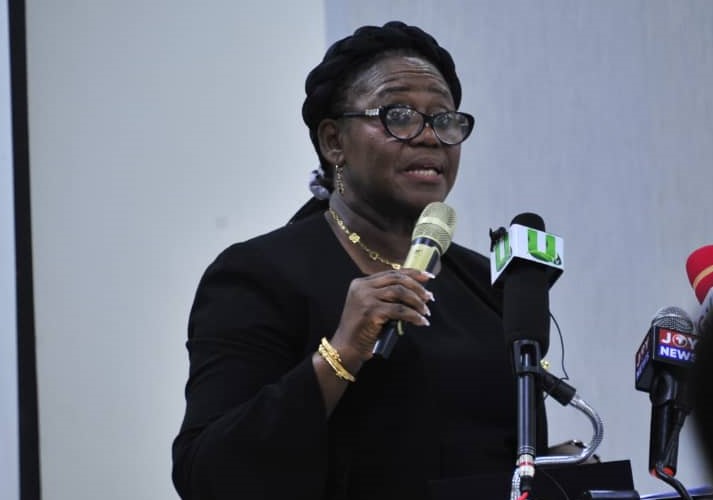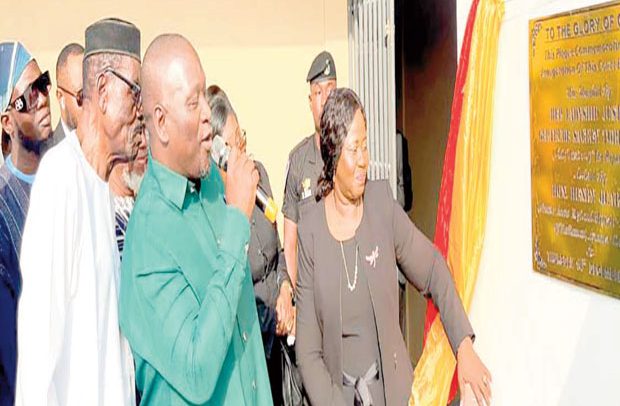
Chief Justice Gertrude Torkornoo has called on the judicial service to work towards eradicating unethical conduct such as exploitation and rent-seeking attitudes that users of the courts face.
She noted that such conduct attracts negative tags such as ‘corruption’, ‘ineptitude’, and ‘inefficiency’ to the activities of the courts.
However, the Chief Justice also called on stakeholders to support the judiciary to overcome these negative tags.
Justice Torkornoo made the call in her address at the launch of her vision framework for the judiciary in Accra on Monday, April 8.
“I deeply crave, along with all our well-wishers, I am sure, to change the tags of ‘corruption’, ‘ineptitude’, and ‘inefficiency’ around the Judiciary and Judicial Service of Ghana. We cannot do this without the support and attention of all stakeholders.
“In order to shake off these tags, training needs to be supplemented with consistent culture-changing strategies to deepen ethical models of work in the courts. Judicial administration must close the gaps through which court users are subjected to exploitation and rent-seeking behaviour.”
She added, “This demands the removal of as much of the human inter-facing that court work is exposed to. Court officials are expected to work with independence, with impartiality, competence, and integrity.”
Furthermore, the Chief Justice advocated for a digitalization agenda in the administration of judicial services. This, according to her, will reduce the high dependence on the human interface for accessing judicial services.
She stressed that much of these ethical values are lost in the heavy traffic of human inter-facing between court officials and court users, including unknown brokers functioning around the courts.
READ MORE:
“The vision for producing culture-changing re-orientation programmes cannot be achieved without the active partnership and support of stakeholders, including communities of businesses, and donors,” said Chief Justice Gertrude Torkornoo.
Meanwhile, the Chief Justice revealed twelve items that range from Administrative Guidelines and Practice Directions, that form part of her immediate goals.
The guide, according to her, prioritises the provision of directions, guidelines, and manuals to increase transparency and due process in court work.
The Administrative Guidelines include Practice Directions on Plea Bargaining, Administrative Guidelines on Courtroom Proceedings, and Procedures for Online Publication of Judgements and rulings, amongst others.
The post CJ calls on judiciary to close gap of ‘exploitation and rent-seeking behaviour’ court users face first appeared on 3News.
Read Full Story























Facebook
Twitter
Pinterest
Instagram
Google+
YouTube
LinkedIn
RSS